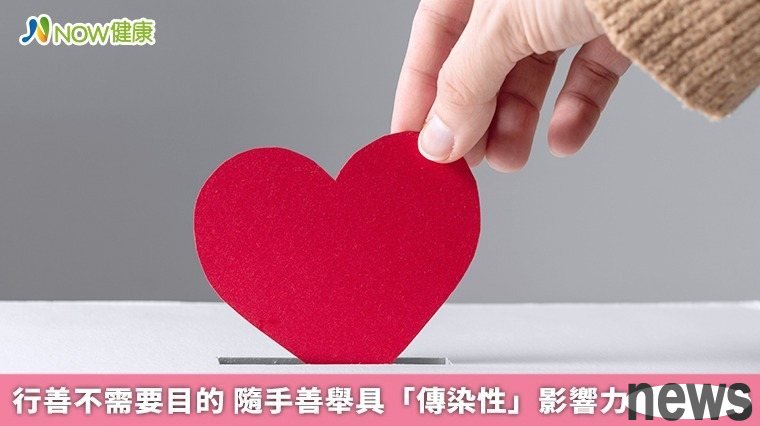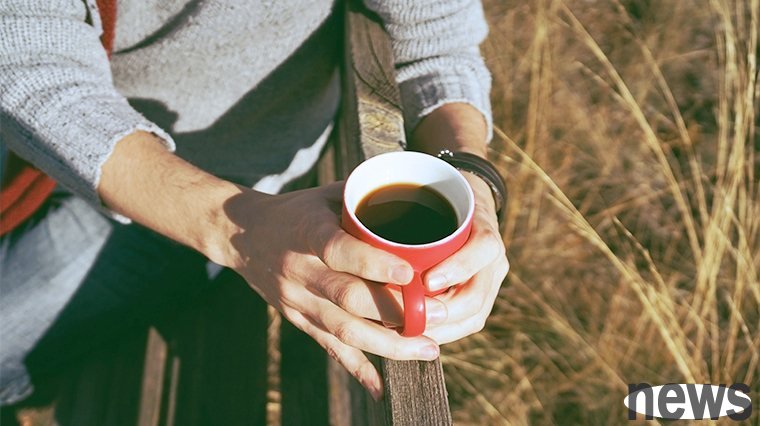You must have heard that doing a good thing every day can bring happiness! But what is necessary to do to help the elderly, weak, young and poor people is called good deeds? In fact, a small kind movement such as raising a car for others, sending a...

You must have heard that doing a good thing every day can bring happiness! But what is necessary to do to help the elderly, weak, young and poor people is called good deeds? In fact, a small kind movement such as raising a car for others, sending a cup of drinks to friends can make others feel warm and pleasant. According to a study published in the Journal of Experimental Psychology in August 2022, it shows that generous behavior is contagious, and those who receive help, sharing or donors will also give in to the outside world and transmit the kindness they receive.
American experiment "Turn to Strangers" The recipient has a good mood beyond expectations. This study was a series of experiments conducted by students from Texas University and University of Chicago. The first experiment was recruited by researchers at the park to choose to send a cup of hot chocolate to strangers or keep it themselves. 75 people agreed that the researchers would send the drinks to strangers and inform them that the participants would give them the gifts. Then they asked the recipient to evaluate their own mood and guess the feelings of others when they received the drinks. The results showed that the recipient underestimated the importance of their own movements. The average estimated that the recipient's sentiment was 2.7 and the recipient's self-evaluated 3.5. 2}The second study divided 200 participants into two groups. 50 of the comparison group received one cake for their participation in the experiment and gave them their mood scores. The other 50 guessed the feelings of the recipients. Of the 100 people in the experiment group, 50 were told that they could send the cake to strangers and help themselves and the recipients' mood scores. The results showed that the recipients who received the cake through good luck were happier than the recipients of the comparison group.

The last study, participants received a gift from a test room store or another participant before the game. Then, the participant who received the gift distributed $100 to themselves and an unknown recipient in the game. It was found that the recipient of the gift was more generous to strangers during the game by randomly receiving the gift.
Those who have received good intentions are more likely to help others. Forming good luck, Lin Jiaxing, a concurrent professor in the Department of Education Psychology and Instruction at Taiwan University of Science and Technology, said that life experience makes us feel that "giving is more blessed than receiving". The above research shows that the recipient's mood is better than what the giver thinks, which is an interesting discovery. Lin Jiaxing explained that the good deeds performed by the "givers" in the study do not use their own money or resources, and they will feel good to help others, but if you want to use your own resources or money to help others, the results may involve the amount of losses and whether they are worthy of the impact. In addition, the "recipients" are all strangers, and the good deeds performed by strangers are more pure, which will make the recipient feel deeper and usually have a better mood. If you understand someone, it may be affected by the degree of understanding and bad relationships.From research, it has also been found that when the givers who receive help are usually more happy and have a better mood when they have the opportunity to help others. When people receive help from others, they will also be kind to help others, forming a cycle of good deeds and providing small good deeds with hands-on actions to strangers. The warmth and pleasure that the recipient feels beyond our imagination. It is recommended that the public can develop the habit of helping others at any time, so that good deeds can grow in society, and everyone will naturally benefit from it.
Doing good deeds does not require purpose. Too much expectation will lead to obstacles. Ye Yaxin, director of the Psychological Health Center of the Dong Foundation, said, "We all know that being good for people will give people a good feeling, but we don't know how good the feeling is." The above research has proved this point. From the score, we can know that people who accept good deeds often do not because of what they receive, but because of this movement." Some people are more or less purposeful in good manners, and hope that there will be results or reports in the future after doing things. They hope that as they expect, Ye Yaxin reminds that there should not be too many "thinking" when doing good deeds, thinking that the other party will react, thinking what will happen, such as the other party should be very happy, no longer difficult or get peace of mind, etc. When the other party's reaction is not as good as expected, it makes the concerned person feel cold and unkind, not worth it, and it is unnecessary, and the "expectation of misjudgment" has become an obstacle to the behavior of benefiting society.It is recommended to try to be kind to the people in daily life, starting with people around "careful" and pay attention to issues that family, colleagues, classmates, friends or public welfare groups. Helping colleagues who are concerned about helping them, such as helping them buy a cup of coffee, pour a cup of water, donate charity, etc., you won’t have too much expectations from a caring perspective, and do what you can to avoid making good things turn into another kind of pressure or burden. For example, if you open up the phone and give the boss a lot of time, you can make the other party careless. The good deeds of the hands are relatively "free" and will not make the help of those who are helping feel the pressure of needing to be repaid. At the same time, it will help to continue to benefit social behavior, accumulate their positive emotions, and develop the influence of goodness.
★This article is authorized by "NOW Health", and the original text is published here
★ Care about big and small things in healthy life, click here to enter [NOW Health]